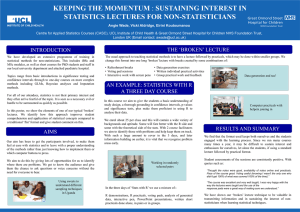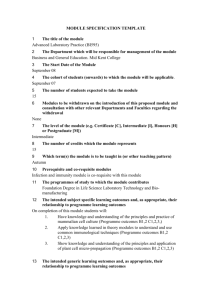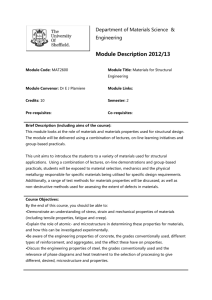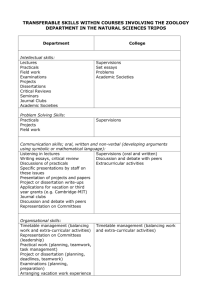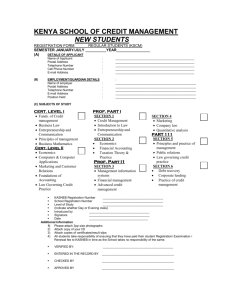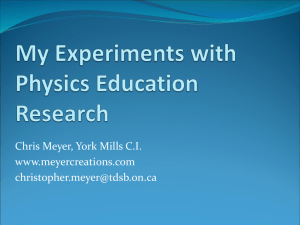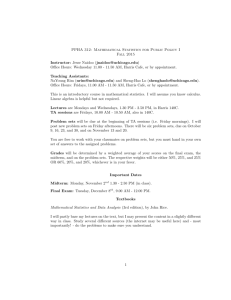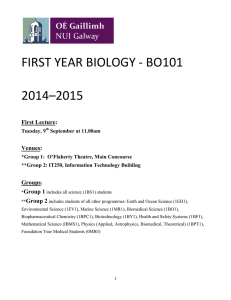Lecture
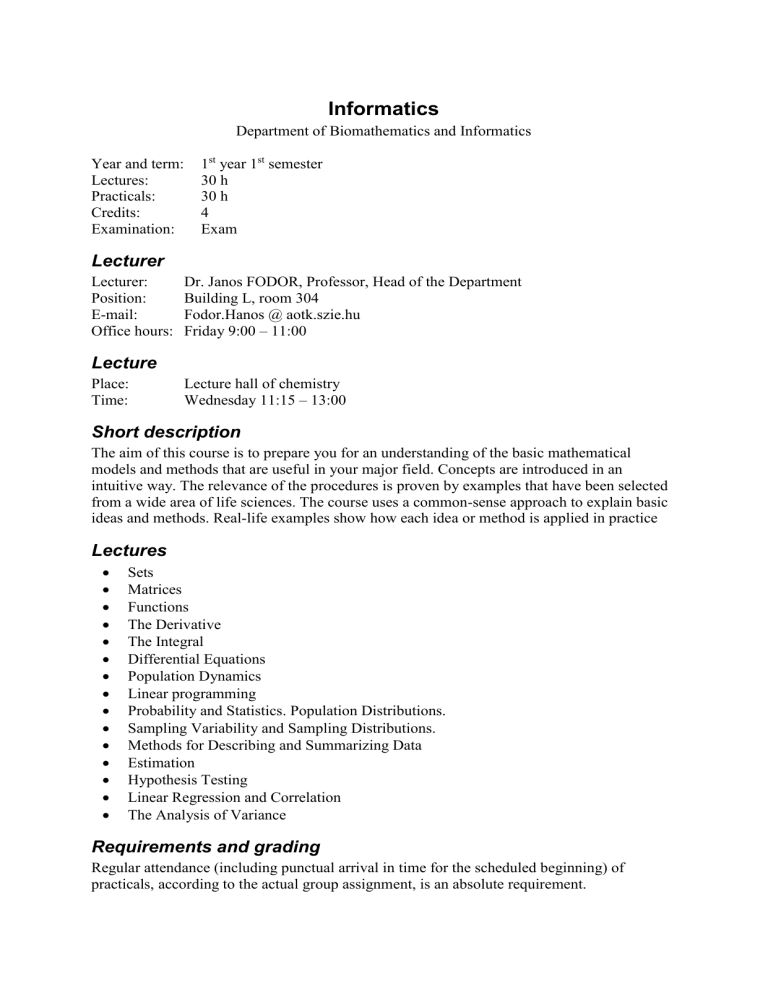
Informatics
Department of Biomathematics and Informatics
Year and term: 1 st
year 1 st
semester
Lectures: 30 h
Practicals:
Credits:
30 h
4
Examination: Exam
Lecturer
Lecturer:
Position:
E-mail:
Dr. Janos FODOR, Professor, Head of the Department
Building L, room 304
Fodor.Hanos @ aotk.szie.hu
Office hours: Friday 9:00 – 11:00
Lecture
Place:
Time:
Lecture hall of chemistry
Wednesday 11:15 – 13:00
Short description
The aim of this course is to prepare you for an understanding of the basic mathematical models and methods that are useful in your major field. Concepts are introduced in an intuitive way. The relevance of the procedures is proven by examples that have been selected from a wide area of life sciences. The course uses a common-sense approach to explain basic ideas and methods. Real-life examples show how each idea or method is applied in practice
Lectures
Sets
Matrices
Functions
The Derivative
The Integral
Differential Equations
Population Dynamics
Linear programming
Probability and Statistics. Population Distributions.
Sampling Variability and Sampling Distributions.
Methods for Describing and Summarizing Data
Estimation
Hypothesis Testing
Linear Regression and Correlation
The Analysis of Variance
Requirements and grading
Regular attendance (including punctual arrival in time for the scheduled beginning) of practicals, according to the actual group assignment, is an absolute requirement.
There are two midterms, 25 points each. The sum of the two midterm points must be at least
25 in order to be allowed to take the final exam (written).
Midterm tests can be repeated at most once, only if you have not missed more than two practicals. Detailed information is provided by practical teachers in time.
The final exam (written) is held in the examination period, it's value is 50 points. It is based exclusively on the lectures.
Therefore, you can have a maximum of 100 points total at the end. The final grade is computed on the basis of the following table:
Total point Final grade
0 – 50
51 – 63
1
2
64 – 76
77 – 90
91 – 100
3
4
5
Some Useful Material:
You might find the following freewares very useful from the course' point of view.
Online Learning Center based on the book Laurence D. Hoffmann and Gerald L.
Bradley, Calculus for Business, economics and the social and life sciences. Seventh edition, McGraw-Hill, 2000. This is very useful for the first half of the semester. It contains the text of the book, chapter summary and review problems, etc. Visit it as often as you can. (http://www.mhhe.com/math/finmath/hoffmann/hoffmann07calc_s/)
Online Learning Center based on the book Allan G. Bluman, Elementary Statistics: A
Step By Step Approach, Fourth edition, McGraw-Hill, 2001. This is very useful for the
SECOND half of the semester. It contains the text of the book, chapter summary and review problems, etc. Visit it as often as you can.
(http://www.mhhe.com/math/stat/bluman4e/student_index.mhtml)
jkgraph.zip A program for graphing and analyzing 2D functions in rectangular, polar, parametric, or polar-parametrized form. Home Page: http://homepage.smc.edu/kennedy_john
WINSTATS. Winstats provides access to scatter plots, curve fitting, histograms, statistical data, and standard theoretical probability distributions. It also simulates dealing cards, sampling candy, tossing darts, needles and coins. There are two leastsquares demos and a confidence-interval demo. Home Page: http://math.exeter.edu/rparris/winstats.html
